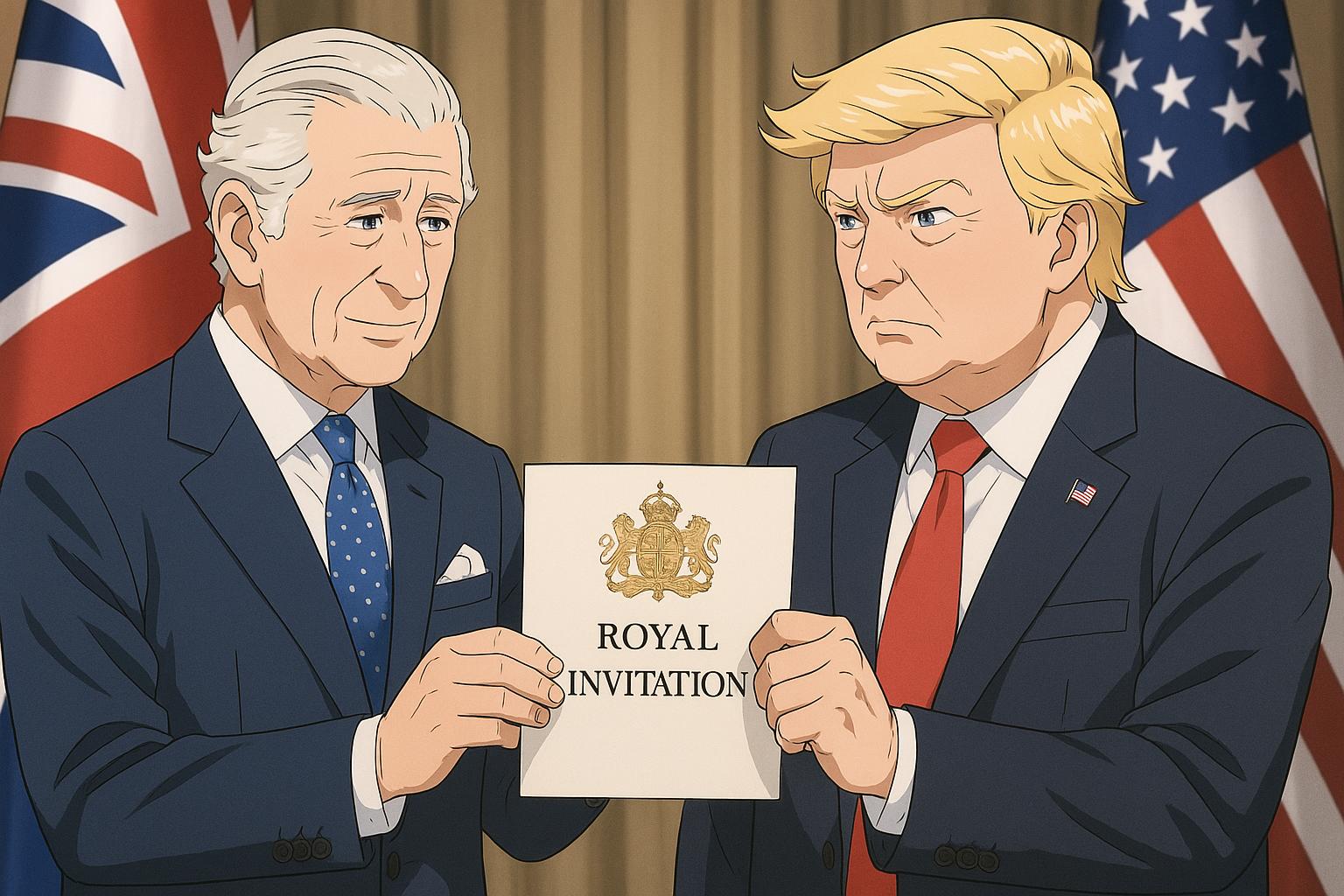King Charles has extended an unprecedented invitation for a second state visit to the United Kingdom to former U.S. President Donald Trump, a gesture that has sparked considerable debate, particularly in Canada. This second invitation came more than six years after Trump’s first official state visit during Queen Elizabeth II's reign in 2019, a visit marked by both commendation and controversy.
The invitation was presented to Trump by UK Prime Minister Keir Starmer during a meeting at the White House in February 2025, marking a significant diplomatic overture from the UK as it seeks to bolster ties with the U.S. in a post-Brexit landscape. Starmer described the occasion as "historic" and "unprecedented," highlighting its symbolic importance amid geopolitical tensions. Trump's previous attendance at high-profile royal events, including a lavish state banquet and meetings with Queen Elizabeth, have established a relatively warm relationship between him and the British royal family.
However, the news has not been well-received in Canada. Prime Minister Mark Carney expressed that the invitation undermines the country's stance on sovereignty, particularly given Trump's controversial remarks about potentially making Canada the "51st state." Carney stated, "To be frank, they weren't impressed by that gesture... given the circumstance," referring to the palpable sensitivity surrounding national identity and autonomy in Canada. Canadians have voiced concerns over Trump's rhetoric since he took office again in early 2025, with Carney's administration actively campaigning against such sentiments.
While Canada officially recognises King Charles as its monarch, this invitation raises questions about the implications for diplomatic relations between Canada and the UK. Carney underscored the importance of maintaining a firm stance on Canadian sovereignty, especially in light of Trump's comments. Following the announcement, the UK has defended its decision as an exercise of national sovereignty, with representatives asserting that each country will manage its relations independently.
In contrast, Trump has been vocal about his appreciation for the UK's royal family and his personal connections with its members, particularly with King Charles and Prince William. Describing his past encounters as "incredible," he expressed enthusiasm for the upcoming visit, suggesting a desire to strengthen transatlantic relations, even amidst potential political friction between the Labour government in the UK and Trump's Republican party in the U.S.
Looking forward, the visit is set to coincide with significant discussions around international security and trade, areas where both countries seek to align their positions. Starmer's invitation of Trump is seen not merely as a ceremonial gesture but as a strategic move to engage the U.S. on pressing global issues, including security guarantees related to the ongoing situation in Ukraine.
As the initial date for Trump's visit approaches, observers will be keenly watching the reactions from Canadian constituents and the broader international community, marking this unprecedented invitation as a pivotal moment in UK-U.S. relations under King Charles’s reign.
Reference Map
- Paragraph 1: (1), (4), (5)
- Paragraph 2: (2), (3), (6)
- Paragraph 3: (2), (5)
- Paragraph 4: (2), (6)
- Paragraph 5: (3), (1)
- Paragraph 6: (4), (5)
Source: Noah Wire Services
